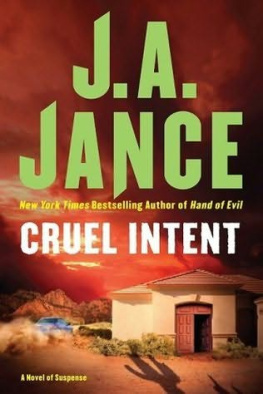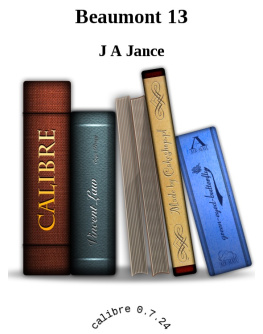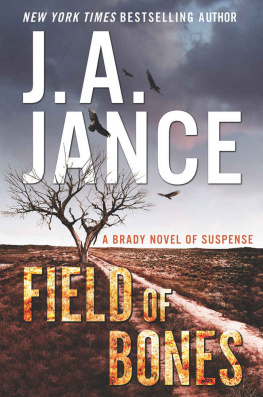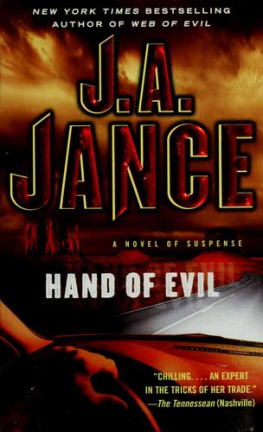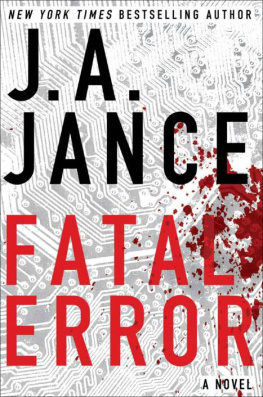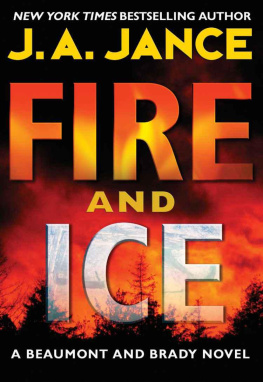PROLOGUE
High on a cliff, theshooter panned the nightscope back and forth across the San Pedro Valley. Ittook a while for him to locate his chosen target across almost a mile of interveningdesert. At last, though, he found it. After first putting on his earprotection, he pulled the trigger. In his hands the fifty-caliber sniper rifleroared to life. He felt certain he had nailed the pump, but there was no way totell for sure. The pump didn't collapse. It just stood there, hit perhaps andwith its interior guts shattered, but outwardly the machinery remainedunfazed.
Frustrated, theshooter looked around for some other possibility. That was when he saw thecattle. Taking a bead on a dozing cow, he pulled the trigger again and wasgratified to see her legs collapse under her. The shooter smiled insatisfaction. There was something god-like in being able to kill from that faraway, to be able to strike without warning, like a thunderbolt. The other cattle,alarmed and frightened, milled about, trying to escape from this unseen threat.Laughing in the face of their stupidity and panic, he dropped another one, justto prove he could.
Letting the others go,he pulled off his ear protection and was starting to take down the tripod whenhe heard someone shouting at him, screaming up at him in fear and out-rage."What are you, crazy? Stop it before someone gets hurt!"
The shooter couldbarely believe his ears. Someone was out there in the desert, a woman, standingsomewhere between him and the dead cattle. Someone who had heard him shooting.
"Sorry," hecalled back. "I was just doing some target practice. I didn't know anyonewas here. Where are you?"
He ducked back down tothe tripod. Once again he sent the nightscope scanning across the desert floor.A minute or two passed before he caught sight of the green-hued figure.Moving determinedly, she was trotting away from him, heading toward the river.It stunned him to realize that she must have been on the mountain the wholetime he was. Maybe she had seen him and could even identify him. Reaching aspot of fairly open desert, she darted forward with all the grace of apanic-stricken deer. The green image in the high-powered night-vision scopesmeared as she accelerated.
Without pausing toconsider, the shooter covered his ears once more and placed a firm finger backinside the trigger guard. The woman was much closer than the cattle had been,so he had some difficulty adjusting his aim. The first shot caused her to tripand duck. As she limped forward, he realized he had winged her, but it wasn'tenough to stop her. The second shot did, at least momentarily. She dropped tothe ground, but even then, desperate to get away, she scrambled to her feetonce more and staggered forward, cradling one arm.
"Damn!" theshooter exclaimed. "Missed again."
His third shot did thejob. The bullet caught her in the middle of the back. She pitched forward andplummeted facedown on the rocky ground. This time she stayed down. He watchedfor the better part of a minute, but there was no sign of movement. None atall.
Up on the mountain,the shooter was barely able to contain his glee as he gathered equipment andshell casings. Killing people did something for him that killing animalsdidn't. It made him feel all-powerful and all-knowing.
He didn't rush,though. He took his time. After all, there was no reason to worry that she'dsomehow get up on her hands and knees and crawl away from him. No, people shotwith fifty-caliber shells weren't mobile enough for that. He had no doubt that bythe time he found herby the time he and his trusty knife arrived on thescenethe woman would still be there, waiting for him.
Stopping at hermailbox after work on a Monday evening in mid-August, Sheriff Joanna Bradysurveyed the heat-shimmering landscape of southeastern Arizona. Off across themesquite-covered Sulphur Springs Valley, she counted eleven separate dustdevils weaving dances and leaving their swirling tracks on the parched desertfloor. It had rained hard late the previous afternoon. Now all that remainedof that gully-washing downpour was elevated humidity and the vague hope thatanother storm would blow through eventually. The dust devils and a few fatpuffs of cloud on the far horizon were the only visible hint that anothersummertime monsoon might soon be in the offing.
Rolling up the windowof her county-owned Blazer, Joanna retreated into air-conditioned comfort.Quickly she thumbed through the mail, hoping to see a postcard from Jenny, herdaughter. Finding none, she tossed the mailbills and advertisingcircularsonto the seat beside her. Then she put the Blazer in gear, rumbledacross the cattle guard, and headed up the narrow track that led to her home onHigh Lonesome Ranch.
Usually the road woundthrough a forest of mesquite sprouting out of hard-packed red clay thatresembled adobe far more than it did dirt. But that summer's rainy season hadbroken all previous records, and it had turned High Lonesome Ranch into ajungle of waist-high weeds. The desert greenery was a life-affirming miraclethat left Joanna Brady fascinated. All her life she had heard about how in theearly days, when Anglos first came west, that part of the Arizona desert hadbeen a lush grassland. When over-grazing gave rise to water-greedy mesquite,the native grasses had all but disappeared. One of Andy Brady's life-longdreams had been to clear away the forest of mesquite on High Lonesome andrestore the depleted grassland. Unfortunately, Deputy Andrew Brady had fallenvictim to a drug lord's hit man long before that dream came true.
The herculean task ofclearing the mesquite was something Joanna and Andy might well have tackledtogether, but on her ownwith an eleven-year-old daughter to raise alone andwith a demanding, time-consuming jobthe stand of mesquite on High LonesomeRanch was safe. At least for now.
Within a quarter mileof the cattle guard, Tigger and Sadie, Joanna's two dogs, came galloping downthe road to meet her. Sadie was a long-legged bluetick hound who ran with allthe easy grace of a greyhound. Tigger, a stocky half pit bull /half goldenretriever, had to struggle to keep up. Twenty yards from the Blazer, theirnoisy approach rousted a long-eared jackrabbit out of the undergrowth. When therabbit exploded from the brush and set off cross-country, the dogs forgot aboutwelcoming Joanna and pounded after him. That oft-repeated nightly ritualchasea contest the dogs always lost and the rabbit always wonnever failed tomake Joanna smile.
By the time she hadpulled up and stopped next to the gate of the fenced yard, the dogs were back.Tongues lolling, they raced around the parked Blazer, searching frantically forsomething they were convinced must be hiding some-where in the car.
"You can look allyou want to," Joanna told the dogs. "Jennys still not here."
Eva Lou and Jim BobBrady, Joanna's in-laws and Jenny's paternal grandparents, had taken Jenny withthem on a two-week trip that included a Brady family reunion in Enid, Oklahoma.Eva Lou and Jim Bob had wanted to show off their only grandchild. They hadoffered to take Joanna along as well, but she had declined: time was doing someof its healing work. Over the past few months, the curtain of grief and hurt ofAndy's loss had gradually begun to lift. Still, Joanna had feared that beingtossed into a virtual army of her dead husband's sympathetic relatives wouldcause a relapse. Pulling herself out of the suffocating morass of grief hadbeen far too hard for her to risk falling into it once more. Against her betterjudgment, she had let Jenny go on the trip without her, mostly because Jennyherself had wanted to.
From the corral,Kiddo, Jenny's horse, voiced his whickered objection. He was looking forJenny, too. With the dogs gamboling around her, Joanna went over to the corraland pulled a sugar cube out of her blazer pocket. Clayton Rhodes, heroctogenarian neighbor and handyman, was good about feeding the animals, but hewasn't long on socializing with them. After giving Kiddo the sugar, Joanna scratchedthe sorrel gelding's nose. "You're not the only one whos lonesome,"she told the horse. "I miss her, too."
Next page

